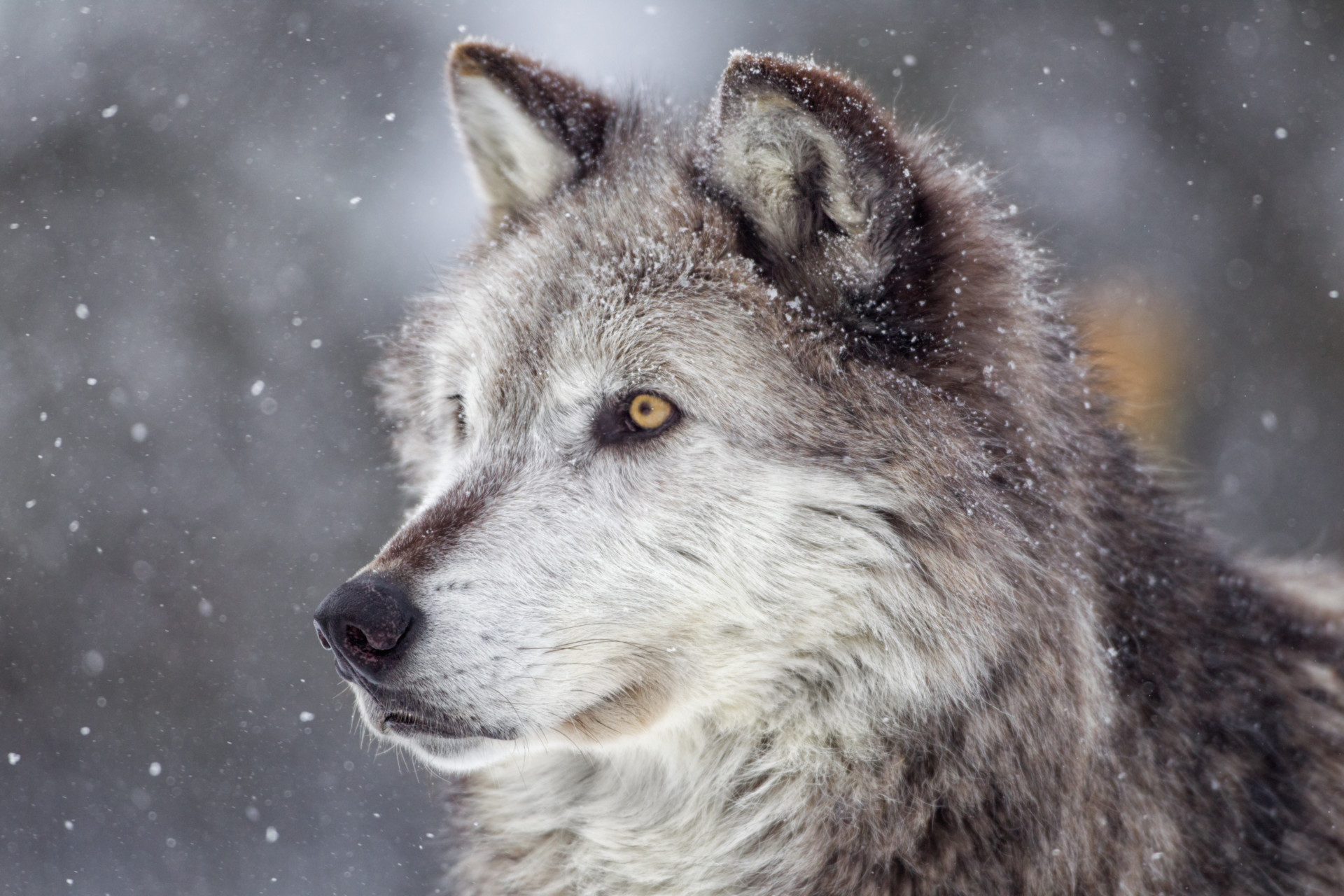
As wolves grow their presence in Colorado, Colorado State University is partnering with ranchers in rural communities to develop sustainable approaches that help livestock producers reduce conflict with wolves. As part of those efforts, CSU plans to offer a series of grants through the Wolf Conflict Reduction Fund to support ranching livelihoods in landscapes with wolves.
The grants will help fund CSU and partners to develop and implement on-the-ground non-lethal tools and peer-to-peer learning experiences to assist producers and communities in areas with wolves. The effort is led by a team of experts, who are also CSU alumni, from CSU’s Center for Human-Carnivore Coexistence and CSU Extension. The grants will be distributed through a competitive application process selected by a committee comprised of CSU scientists, Extension agents, federal and state wildlife agencies, non-governmental organizations, and livestock producers.
Native to the state, wolves were extirpated from Colorado in the mid-1940s via government-sponsored eradication. But with the 2020 passage of Proposition 114, which calls for the reintroduction of gray wolves to western Colorado by 2023, and with the recent migration of wolves into northern Colorado, approaches that reduce conflict between wolves and people, including predation on livestock, is becoming more important.
CSU alum Kevin Crooks, director of the Center for Human-Carnivore Coexistence, an academic center within CSU’s Warner College of Natural Resources that focuses on integrating science, education, and outreach to minimize conflict and facilitate coexistence between humans and carnivores, helped establish The Wolf Conflict Reduction Fund. He said that investment in innovating and implementing proactive conflict reduction methods can reduce impacts to both wolves and people.
“Our work applies the latest social and ecological science to understand how and where humans and carnivores can coexist,” Crooks said. “By doing so, we are able to meaningfully collaborate with communities and help implement relevant and proven approaches that reduce conflict.”
Some of these approaches include fencing, flagging, scare devices, guardian dogs, range riders, and sustainable livestock practices. Field trips for ranchers to other regions with wolves, such as Montana, a state with deep experience living and ranching with wolves and other large carnivores, and community outreach aimed at increasing rural and urban awareness around human-carnivore coexistence, are also programs being organized by CSU.
CSU alum, C.J. Mucklow, interim director of Field Operations for CSU Extension and extension regional director Emeritus, and Robin Young, Archuleta County Extension director, are helping lead the community outreach efforts. While they are seeing success in their current efforts, they know more needs to be done.
“Colorado’s wolf population is expected to grow from natural migration and reintroduction in the coming years,” Mucklow said, “and true to Extension’s mission, we want to make sure that we are partnering with communities by sharing the most effective tools, programs, and information that safeguard health, increase livelihood, and enhance well-being. Support for The Wolf Conflict Reduction Fund further supports our efforts.”
“Extension has a broad reach into communities to help livestock producers reduce conflict with wolves,” continued Young. “We are proud to be able to connect people with the most up-to-date resources and education on living with wolves.”
Jo Stanko, a long-time rancher in Routt County, appreciates the additional support available to ranchers as they plan and manage their operations.
“The ranchers that are here today understand and love their land,” Stanko said. “In order to survive, ranchers must plan for the worst, hope for the best, and deal with what comes while balancing expenses, income, and losses.”
Applications for the community grants are expected to be available in winter 2022-23, and anyone interested in donating to The Wolf Conflict Reduction Fund can give directly at advancing.colostate.edu/WOLFCONFLICTREDUCTION.